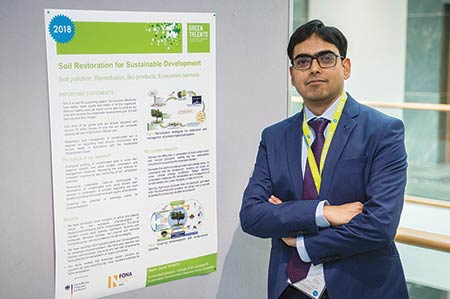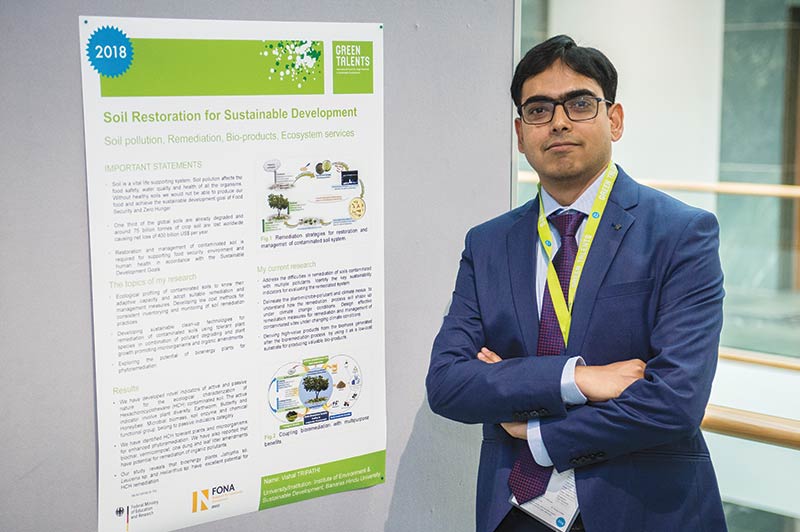
For his research paper on cleansing contaminated soil, Vishal was awarded an all-expenses-paid two-week tour (October 13-27) of Germany including visits to the Technical University of Dresden, Max Planck Institute for Biogeochemistry, Jena and Institute for Social-Ecological Research, Frankfurt. Vishal has also won a fully-funded research opportunity of three months in 2019 at a German university of his choice, and access to the exclusive Green Talents alumni network.
According to Vishal, his research paper titled ‘Soil restoration for sustainable development’ focuses on the effect of ubiquitous soil and environmental pollution on agriculture and the quality of life. The paper highlights tolerant plant species, multipurpose bacterial species and various agro-residues combined with biomass and bioenergy which can be utilised for cleansing chemicals and pesticides in soils.
“The educational tour prize provided an excellent insight into Germany’s research landscape, its ground-breaking on-site projects and opportunities for environmentalists worldwide to cooperate with environmental scientists. This exposure to highly advanced technologies and the work culture of Germany has vastly improved my understanding of global environmental problems and their possible solutions,” he acknowledges.
Vishal’s take-away from his education tour of Germany: “India needs climate-smart, cost-effective green technology to clean up its vast stretches of contaminated soil. I believe there are solutions for soil pollution and contamination. India is still predominantly an agricultural country which if it can clean up its soil and environment, can substantially improve agriculture production and provide ample safe and nutritious food to achieve the UN Sustainable Development Goal of zero hunger.”
Dipta Joshi (Mumbai)
